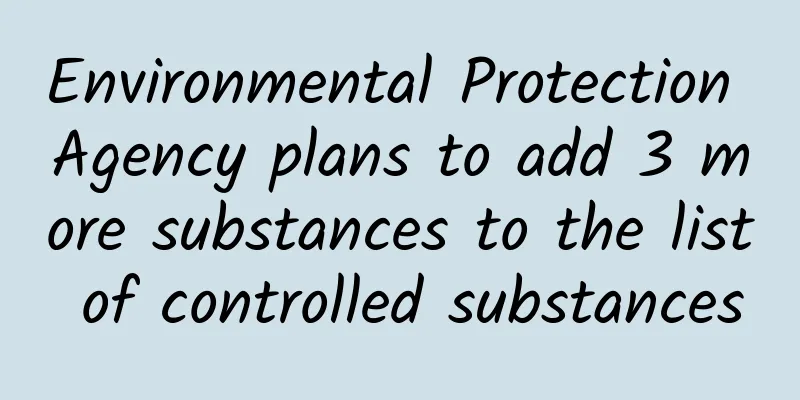Environmental Protection Agency plans to add 3 more substances to the list of controlled substances

|
Drinking water helps eliminate toxins from the body. In order to ensure the quality of drinking water for the people, the Environmental Protection Agency has completed water quality inspections for more difficult-to-detect regulated items in 318 tap water treatment plants and 38 simple tap water supply systems this year. The pass rate was nearly 100%. In the future, the agency will develop operating principles for screening drinking water regulated items, and include plasticizers DEHP, aluminum, and haloacetic acids in the list of regulated substances to be inspected, to further ensure that drinking water is healthy. In order to safeguard the quality of drinking water for the people of the country, the Environmental Protection Agency plans to include DEHP, aluminum and haloacetic acids in the water quality control items. The Environmental Protection Agency pointed out that there are 357 tap water treatment plants in Taiwan. This year, it plans to assist county and city governments in conducting water quality sampling at 364 water treatment plants. As of the end of July, 318 tests in the first phase have been completed, and a total of 7,267 water quality items have been inspected, with a pass rate of 99.97%. In addition, 38 simple tap water supply systems have been inspected for a total of 456 water quality items, with a pass rate of 100%. The testing items include 38 items in six categories, namely heavy metals regulated by laws and regulations, substances affecting health, disinfection by-products, volatile organic compounds, pesticides and persistent organic pollutants. The unqualified parts were: total trihalomethanes exceeded the standard in the clear water of Xinyi Water Treatment Plant in Nantou County on May 14 (the test value was 0.0868 mg/L, and the regulatory standard value was 0.08 mg/L); and bromate exceeded the standard in the water of Guguan Water Treatment Plant in Taichung City on July 26 (the test value was 0.020 mg/L, and the regulatory standard value was 0.01 mg/L). Total trihalomethanes and bromate are both disinfection by-products, which are substances produced during the disinfection process. Among them, total trihalomethanes may affect the functions of the human nervous system, liver and kidneys. The main reason for their formation in drinking water is the reaction between chlorine and organic matter in the water during the chlorination disinfection process. Bromate may affect human kidney function and cause cancer. The reasons for its formation in drinking water include seawater infiltration into the water source, resulting in high bromide ion concentration in the water, or after chlorination or ozone disinfection during water purification procedures. After improvements and tracking, the test results of the Nantou Xinyi Water Treatment Plant have met the standards, and the Taichung Guguan Water Treatment Plant will be re-inspected by the Taichung Municipal Government Environmental Protection Bureau in the near future. However, in order to continue to strengthen the detection of regulated substances in drinking water quality standards, Yuan Shaoying, director of the Toxic Substances Division of the Environmental Protection Agency, said that the Environmental Protection Agency has referred to the practices and spirit of international drinking water management and is planning to revise the screening operation principles for drinking water regulated items. It intends to list three harmful substances as regulated items: aluminum that may cause dementia, haloacetic acids produced by chlorination disinfection, and DEHP, the most difficult type of plasticizer to decompose. Currently, the Environmental Protection Agency has required water companies to conduct their own testing of DEHP, aluminum and haloacetic acid concentrations in raw water. Once relevant information and data are fully collected, the agency will further assess the risks and establish testing standard values as the basis for decision-making on drinking water control projects, so as to legalize screening operations and ensure the safety of drinking water for the public. |
<<: Fresh fish from Pudu is served. Domestic fish is delicious and inexpensive.
>>: Gastric band plication surgery achieved great results in reducing 60% of excess weight
Recommend
What are the precautions for cervicitis?
What are the precautions for cervicitis? Whether ...
Green tea vs. coffee, which one is better for burning fat before exercise?
Burn that fat! In order to get rid of excess fat ...
What is the best treatment for vulvar itching?
Vulvar itching is often caused by a fungal infect...
48-year-old female menstruation
48-year-old female menstruation A 48-year-old wom...
Just can’t lose weight? All-round weight loss, look here
The main reason for weight gain is that the calor...
Experts briefly analyze the common symptoms of vulvar leukoplakia
Vulvar leukoplakia is a disease that seriously en...
What are the specific symptoms of ectopic pregnancy?
The symptoms of ectopic pregnancy will not be dis...
Revealed: The reason why candidal vaginitis recurs
According to the latest survey data, many patient...
What symptoms can determine whether you have irregular menstruation?
Women are one of the groups most vulnerable to di...
What should patients with cervicitis do in summer? Introducing self-care methods for patients with cervicitis
The weather is hot in summer, and many gynecologi...
Is uterine fibroid surgery dangerous? Is the incidence of uterine fibroids high?
Uterine fibroids are common gynecological disease...
Doctors explain the dangers of threatened abortion
Pregnancy is the most important event in a woman&...
What tests are needed for pelvic effusion 23MM?
Pelvic effusion is divided into physiological eff...
How to treat cervical hypertrophy in women
Cervical hypertrophy is usually caused by chronic...
After a miscarriage, it is necessary to check whether the miscarriage is complete in time. How to judge whether it is complete?
There are many ways to judge whether a miscarriag...









